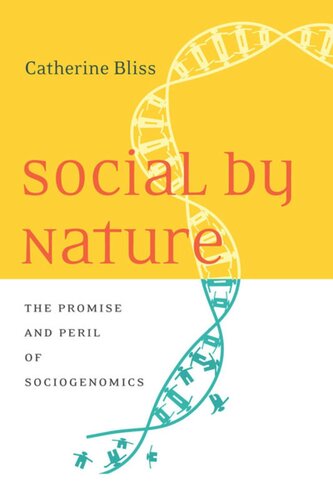

Most ebook files are in PDF format, so you can easily read them using various software such as Foxit Reader or directly on the Google Chrome browser.
Some ebook files are released by publishers in other formats such as .awz, .mobi, .epub, .fb2, etc. You may need to install specific software to read these formats on mobile/PC, such as Calibre.
Please read the tutorial at this link: https://ebookbell.com/faq
We offer FREE conversion to the popular formats you request; however, this may take some time. Therefore, right after payment, please email us, and we will try to provide the service as quickly as possible.
For some exceptional file formats or broken links (if any), please refrain from opening any disputes. Instead, email us first, and we will try to assist within a maximum of 6 hours.
EbookBell Team

5.0
18 reviewsSociogenomics has rapidly become one of the trendiest sciences of the new millennium. Practitioners view human nature and life outcomes as the result of genetic and social factors. In Social by Nature, Catherine Bliss recognizes the promise of this interdisciplinary young science, but also questions its implications for the future. As she points out, the claim that genetic similarities cause groups of people to behave in similar ways is not new—and a dark history of eugenics warns us of its dangers.
Over the last decade, sociogenomics has enjoyed a largely uncritical rise to prominence and acceptance in popular culture. Researchers have published studies showing that things like educational attainment, gang membership, and life satisfaction are encoded in our DNA long before we say our first word. Strangely, unlike the racial debates over IQ scores in the '70s and '90s, sociogenomics has not received any major backlash. By exposing the shocking parallels between sociogenomics and older, long-discredited, sciences, Bliss persuasively argues for a more thoughtful public reception of any study that reduces human nature to a mere sequence of genes.
This book is a powerful call for researchers to approach their work in more socially responsible ways, and a must-read for anyone who wants to better understand the scholarship that impacts how we see ourselves and our society.